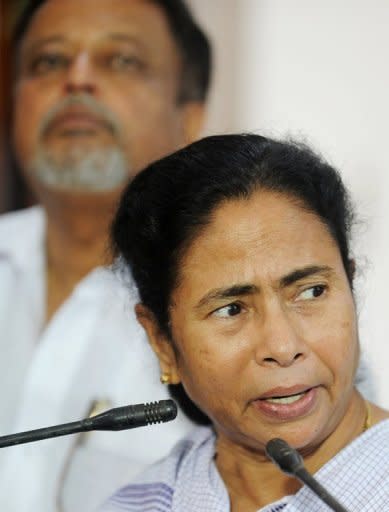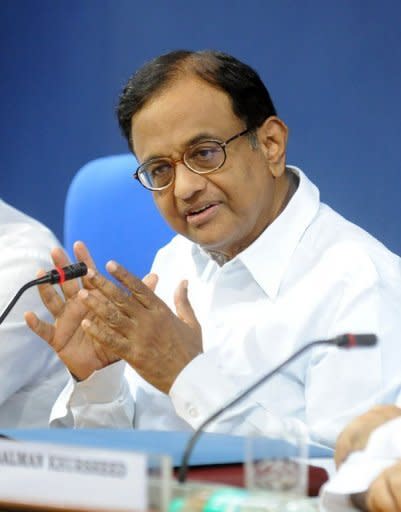Indian PM stands by reforms after losing majority
India's Prime Minister Manmohan Singh mounted a defiant defence Friday of reforms that resulted in the loss of his government's majority, saying he had to act to bolster growth and restore confidence. In a rare televised address, the 79-year-old said he would be "failing in my duty as prime minister of this great country" if he did not take decisive action but said that talk of widespread job losses was wide of the mark. His opponents accused him of selling out the country to foreign interests despite his insistence that there was no alternative. "At times, we need to say no to the easy option and say yes to the more difficult one. This happens to be one such occasion," said Singh. "The time has come for hard decisions." The premier's address comes on the day that Trinamool, the main coalition ally of his Congress party, withdrew support over a 12-percent hike in diesel prices and plans to let foreign supermarkets such as Walmart set up shop. It leaves Congress running a minority government, dependent on outside support from other parties and vulnerable to falling before scheduled elections in 2014. India's economy grew by just 5.5 percent in the second quarter of the year, its slowest rate for more than two years. Ratings agencies have warned India is in danger of being downgraded to junk status in the absence of decisive action from the government to rein in its budget deficit, forecast at more than 5.0 percent of GDP this fiscal year. "We have to restore the confidence of foreign investors," said Singh. "Money does not grow on trees and that is why we have made these decisions." Years of tension between Congress and Trinamool exploded last week after Singh's government announced his string of reforms. Fiery Trinamool chief Mamata Banerjee initially gave the government 72 hours to withdraw the measures, then announced that her party would quit on Friday unless her demands were met. The party's six ministers formally submitted their resignations to the premier on Friday afternoon, with all of its 19 lawmakers joining the opposition ranks. In an angry parting shot at her erstwhile ally, Banerjee accused Singh of allowing in foreign supermarkets in "an undemocratic and unethical manner". "The government is selling out the country. You will lose your land, shops and livelihood if the decision is implemented," she said in her western stronghold of Kolkata. Singh dismissed such talk as fearmongering. "Organised modern retailing is already present in our country and is growing," he said. "In a growing economy there is enough space for the big and small to grow together." The government faces a broad alliance of opposing forces. Shopkeepers, traders and labourers blocked railway lines and closed markets across India on Thursday in protests organised by unions and opposition parties. Neerja Chowdhury, an independent political analyst, said Singh had done little to silence his critics. "I do not think that his appeal will make any difference, protests against retail reforms will not stop," Chowdhury told AFP. "All we can do is appreciate the fact that he has made an effort to come out and speak, which is a rarity in his case." While analysts say Trinamool's departure increases the prospects of early polls, Singh appeared in no immediate danger after the regional Samajwadi Party vowed to keep out the opposition BJP party and their Hindu nationalist agenda. "We will not allow communal forces to come into power. Why should I withdraw support to the Congress?" party chief Mulayam Singh Yadav told reporters. It was unclear if Samajwadi, whose 21 MPs generally back the government, would take up posts when Singh reshuffles his cabinet. Even Yadav, a wrestler-turned-politician, is against foreign supermarkets entering India, underlining the difficulties the government will have in pressing ahead with reforms. Finance Minister P. Chidambaram unveiled new measures to boost the economy on Friday, indicating the administration was looking to change the perception of a government mired in corruption scandals. The changes aim to encourage investors to put extra money in the stock market and spur more domestic companies to borrow cheaply abroad, leading to fresh leaps on the Bombay Stock Exchange. The benchmark Sensex Index closed up 2.2 percent, while the Indian currency also climbed, hitting a four-month-high against the dollar of 53.38 rupees.





